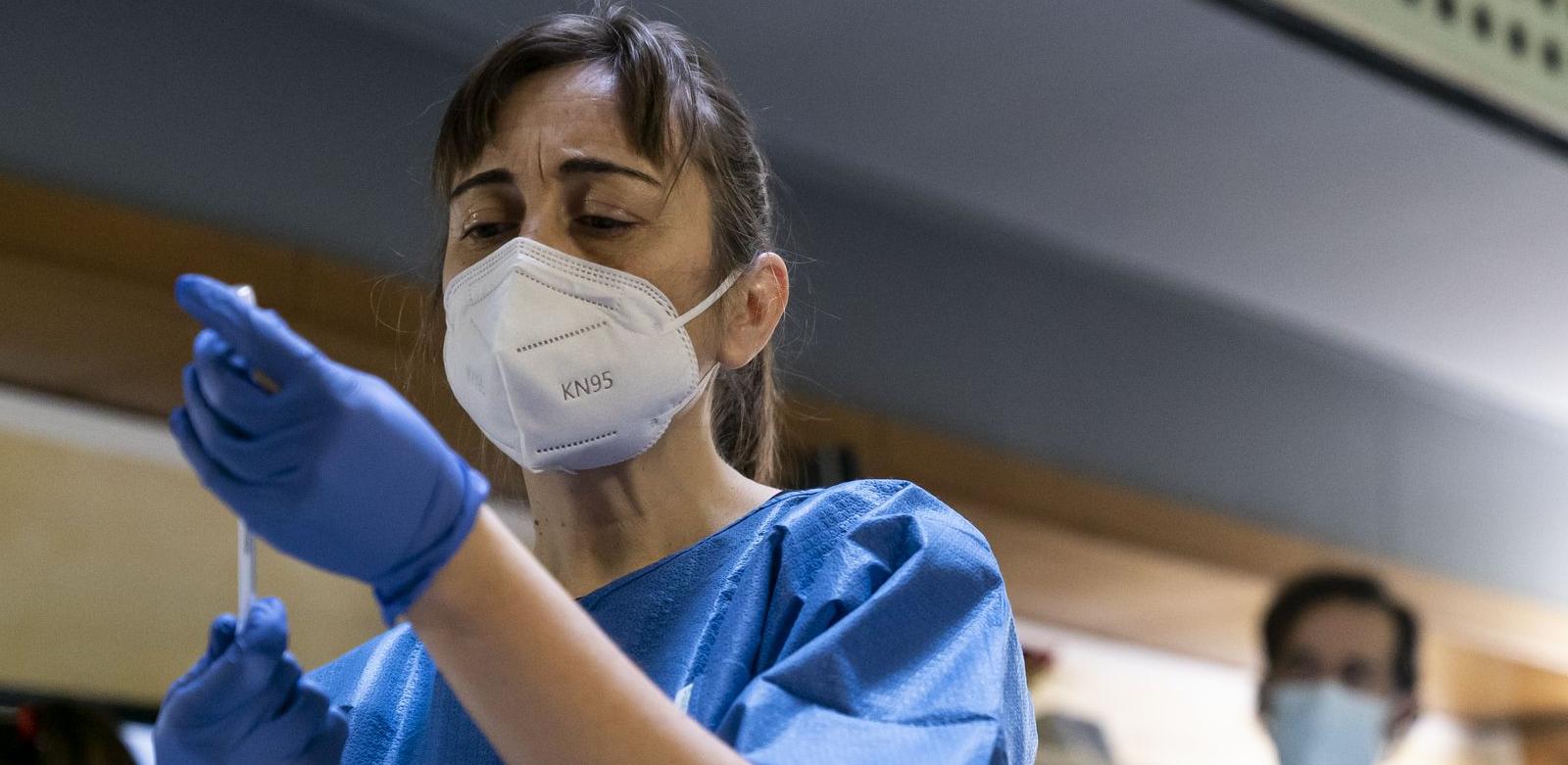The Number of SARS-CoV-2 Infections Among Vaccinated People Could Be Overestimated Unless Appropriate Serological Tests Are Used
ISGlobal research team found that some COVID vaccines induce antibodies that recognise a viral antigen which is not included in the vaccine
18.11.2021
A considerable percentage of people immunised with the Pfizer-BioNTech and Moderna vaccines, which target the SARS-CoV-2 Spike protein generate antibodies that can recognise a fragment of another viral protein (the N protein), according to a study by the Barcelona Institute for Global Health (ISGlobal). These rather unexpected findings have implications for serology-mediated detection of infections in vaccinated people. They do not question the validity of diagnostic tests that detect viral presence (PCR or rapid antigen tests).
All vaccines approved in Europe use the SARS-CoV-2 Spike protein as antigen, and therefore induce the production of Spike-specific antibodies. Because of this, serological tests to establish whether a vaccinated person has been infected measure antibodies to other viral proteins that are not included in the vaccine, such as the N (nucleocapsid) protein.
“With the emergence of new variants that can potentially evade vaccine immunity, it becomes of particular importance to monitor the percentage of vaccinated people that become infected,” explains Carlota Dobaño, first author of the study.
An unexpected finding
From the beginning of the pandemic, Dobaño and her team have been closely following the production and duration of antibodies against different viral antigens in two cohorts of healthcare workers in Catalonia (SeroCov and Covicatcentral). In this study, carried out in collaboration with the Catalan Institute of Health Central Catalonia, they describe an unexpected finding: the mRNA vaccines (Pfizer-BioNTech or Moderna) induce antibodies that not only recognise the Spike protein, but can also recognise a fragment of the N protein (the C-terminal region) of SARS-CoV-2.
The research team detected, in a considerable percentage of vaccinated individuals, a significant increase of IgG antibodies that can recognise the C-terminal region of the N protein (36% of people who received Moderna and 13% of people who received Pfizer). The Moderna vaccine also induced an increase in antibodies that recognise the full-length N protein, although in a lower percentage of people.
“This phenomenon does not seem to result from the reactivation of immunity acquired by infection, since it was observed both in people who had been previously infected and in people who had no history of prior infection,” explains Gemma Moncunill, senior author of the study. The most probable explanation, according to the authors, is that Spike vaccination can induce antibodies that cross-react with the C-terminal fragment of N.
Multiple viral antigens are better to detect breakthrough infections
These results are relevant in terms of public health, since it has been proposed to use the N protein to monitor breakthrough infections in vaccinated people. “This could lead to an overestimation of breakthrough infections, since a considerable percentage of cases would be misclassified as asymptomatic infections,” explains Dobaño. In consequence, vaccine effectiveness against infections would be underestimated.
The authors conclude that the N protein (in any case the N-terminal region) should not be used to detect breakthrough infections and that ideally a combination of multiple viral antigens should be used. This would allow a better estimation of vaccine effectiveness.
The study was funded by the Daniel Bravo Foundation and EIT-Health, among others.
Reference
Dobaño C, Jiménez A, Rubio R et al. Spike-based COVID-19 immunization increases antibodies to nucleocapsid 1 antigen. 2021. Translational Research. https://doi.org/10.1016/j.trsl.2021.10.004



